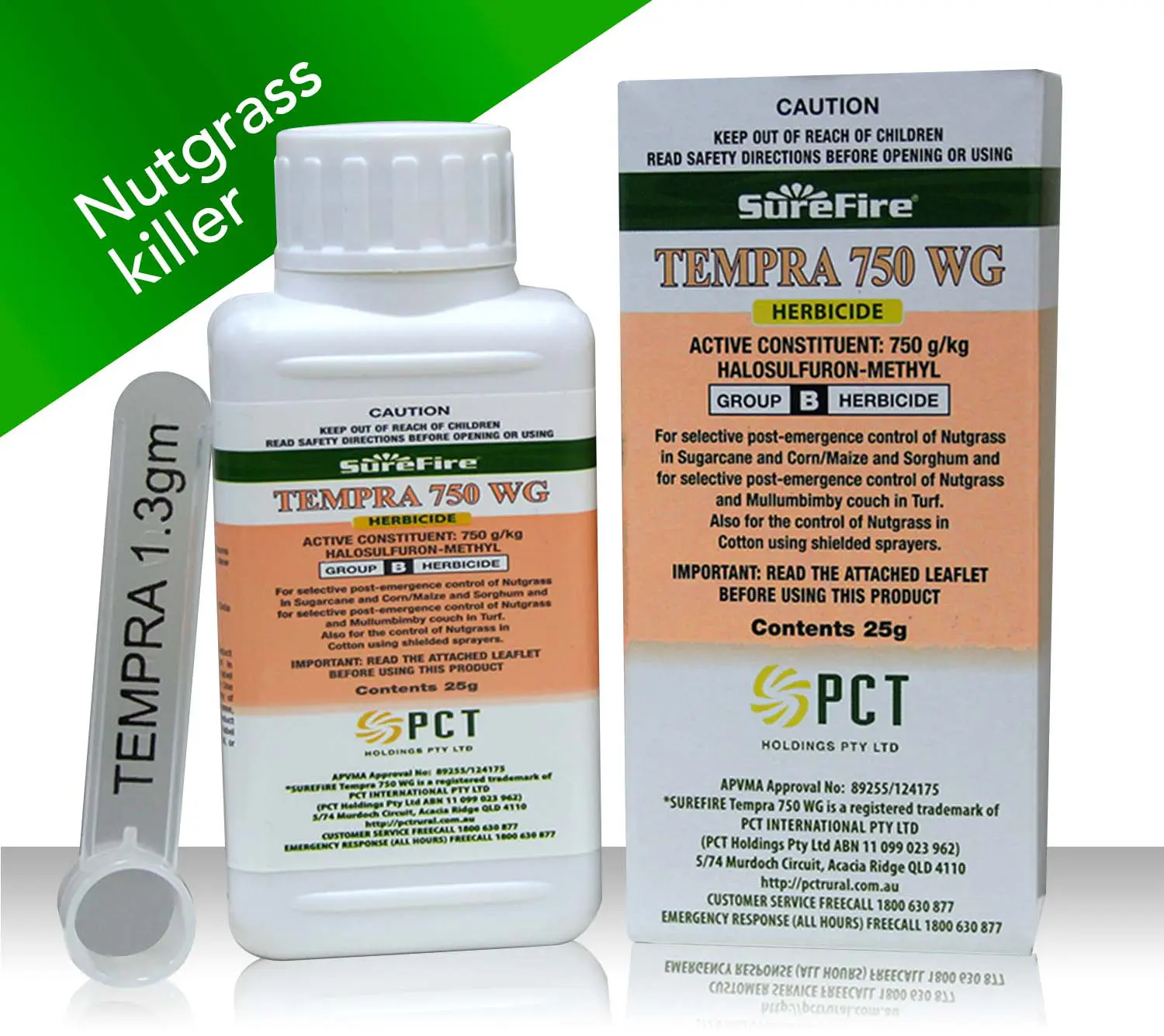Tempra Nutgrass Killer
Nutgrass and sedge control
Tempra herbicide is a granular product dissolved in water for the effective control of Nutgrass and Mullumbimby couch without damaging your lawn.
53 in stock
Description
Why is Nutgrass so hard to kill?
There are several reasons why nutgrass is difficult to kill:
- It is not a broadleaf weed and the normal bindii and clover killers won’t work
- It has glossy leaves, this means large droplets containing herbicides can roll straight across the leaf and onto the ground, preventing absorption
- It can be persist and knows when it’s being attacked, cutting off the top and regrowing from the tuber.
- Herbicides that do control it come in a wettable granular formulation as opposed the liquid formulations we are used to, that means a little extra mixing
How to kill nutgrass
The secrets to killing nutgrass is to overcome some of the obstacles above.
- Get the right herbicide for the job, Tempra is selective in nature, killing without harming your lawn.
- Use a surfactant like Spreadwet to ensure the product sticks to the leaf and doesn’t roll off. Wet Out works by reducing the surface tension of the spray droplet.
- Re-application will likely be required and is best when the weed has recently emerged and is still small.
- Ensure the wettable granular is properly dissolved and evenly distributed within the tank This can be done by mixing the product in a small amount of water before adding it to the tank or by shaking the tank vigorously.
Tempra Label
Cultural controls
With our product recommendations we like to help you get the best results and reduce the likelihood of having to deal with the problem again. It will likely require repeat applications in bad infestations but we can do something to reduce the spread of the weed and reduce any future infestations. As you may know by now Nutgrass is a sedge and sedges love water so the best way to prevent it from coming back is to reduce the water in the affected area. Sedges being present is generally an indicator that the soil is compacted and wet. So let’s resolve those problems. This doesn’t mean drying your turf out, it just means ensuring it’s not constantly wet. Start by identifying why this area is becoming wet. Common reasons include:
- Poor water penetration, creating a runoff to this low area
- Shaded areas receiving too much water
- La Nina in 2022 and 2023 has been an incredible force in creating an increase in sedges
The ways to resolve this include:
- Aeration of soil
- Use of a wetting agent to increase water penetration
- Improve drainage
Additional Information
Additional information
| Weight | 0.03 kg |
|---|---|
| Dimensions | 5 × 5 × 5 cm |
